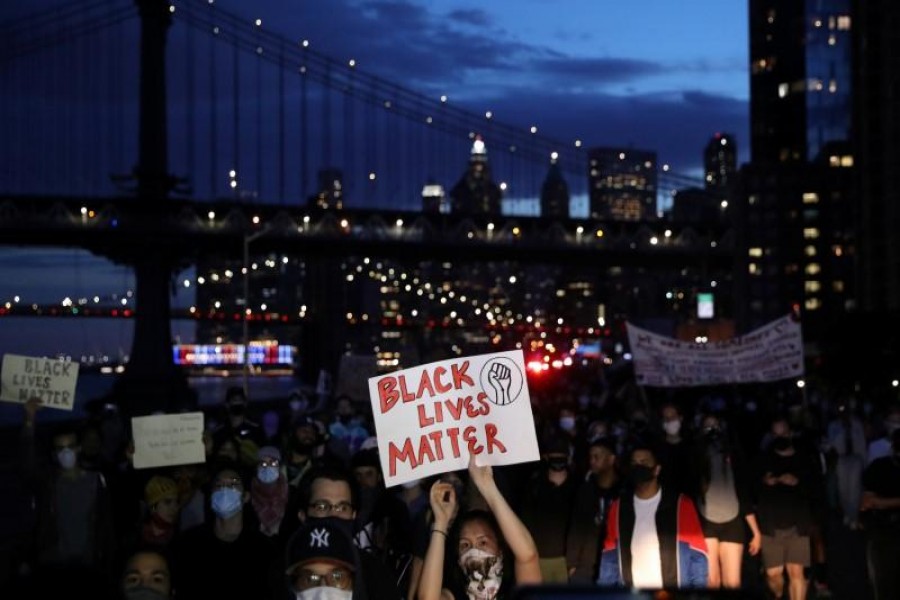President Donald Trump has threatened to send in the military to quell growing civil unrest in the US over the death of a black man in police custody.
He said if cities and states failed to control the protests and "defend their residents" he would deploy the army and "quickly solve the problem for them".
Protests over the death of George Floyd are entering their seventh day, reports the BBC.
As Mr Trump spoke at the White House, police cleared protesters from a nearby park with tear gas and rubber bullets.
The president then crossed the park and posed next to a damaged church, provoking widespread criticism from those who accused him of aggressively targeting the peaceful demonstrators in aid of a photo opportunity.
Meanwhile, dozens of major cities have imposed overnight curfews. New York City is under lockdown until 05:00 (09:00 GMT) on Tuesday and Washington DC has extended its curfew for another two nights.
But demonstrations have largely continued unabated. They began after a video showed Mr Floyd, 46, being arrested in Minneapolis on 25 May and a white police officer continuing to kneel on his neck even after he pleaded that he could not breathe.
The officer, Derek Chauvin, has been charged with third-degree murder and will appear in court next week. Three other police officers have been fired.
On Monday, an official post-mortem examination declared Mr Floyd's death a homicide.
What did Trump say?
The president delivered a brief address from the White House Rose Garden, amid the sound of a nearby protest being dispersed.
Mr Trump said "all Americans were rightly sickened and revolted by the brutal death of George Floyd" but said his memory must not be "drowned out by an angry mob".
He described the scenes of looting and violence in the capital on Sunday as "a total disgrace" before pledging to bolster the city's defences.
"I'm dispatching thousands and thousands of heavily armed soldiers, military personnel and law enforcement officers to stop the rioting, looting, vandalism, assaults and the wanton destruction of property," he said.
Mr Trump then turned his attention to the national protests, which he blamed on "professional anarchists" and the anti-fascist group Antifa. On Sunday, he said he intended to designate Antifa as a terrorist organisation.
He called on cities and states to deploy the National Guard, the reserve military force that can be called on to intervene in domestic emergencies, "in sufficient numbers that we dominate the streets". About 16,000 of its troops have been deployed to deal with the unrest so far.
Mr Trump added: "If a city or state refuses to take the actions that are necessary... then I'll deploy the United States military and quickly solve the problem for them."
"I want the organisers of this terror to be on notice that you'll face severe criminal penalties," he said.
His comments were met with swift criticism from senior Democrats. Joe Biden, the party's presumptive presidential candidate, said Mr Trump "[was] using the American military against the American people".
What's the latest with the protests?
More than 75 cities have seen protests over what happened to George Floyd. Streets that only days ago were deserted because of the coronavirus pandemic have filled with demonstrators marching shoulder to shoulder.
Protests kicked off for another evening on Monday and more than 40 cities have imposed or extended their curfews.
Thousands of people marched in New York, and video footage on social media showed looting at major shops in Manhattan.
Smaller protests took place in other cities including Los Angeles and Oakland.
Elsewhere, the chief of Louisville Police in Kentucky was fired after police and National Guard shot into a crowd on Sunday night, killing the owner of a nearby business.


